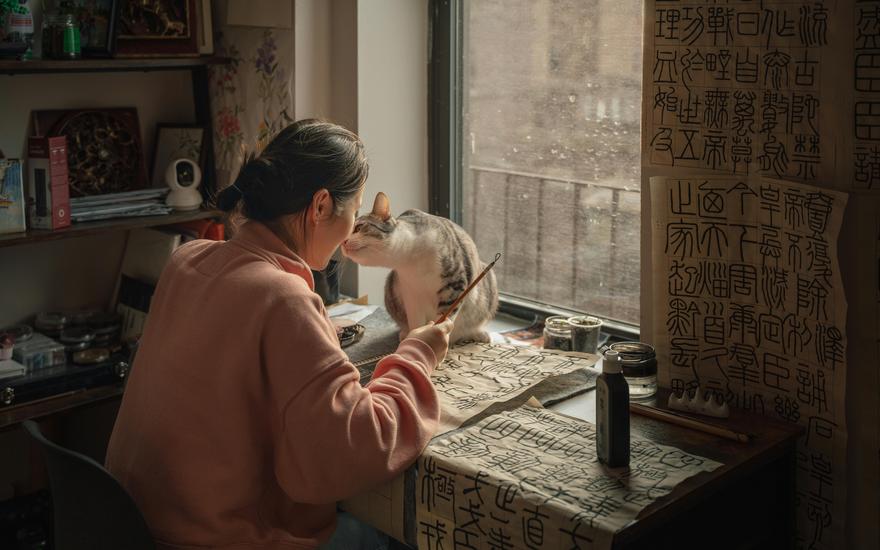The Art of Practice: What Are You Practicing?

“You are what you practice most.” – Richard Carlson
We often think of practice as something you do to get somewhere else. You practice the scales to master the piano. You rehearse the pitch to land the deal. You run drills so you can win the game. But here’s the deeper truth: we are always practicing something, consciously or not. The question is, what are you practicing?
Are you practicing being reactive or being creative? Are you practicing rushing or cultivating calm? Are you practicing self-doubt or practicing trust? Over the past decade, I have come to see my work not as a job or even a vocation but as a practice. And that shift in language has changed everything. Because practice isn’t just about personal development; it’s about what you consistently offer to the world.
For me, practice is presence. It’s listening deeply to another person’s words and what lies beneath them. It’s asking the question that unlocks a door they didn’t know was there. It’s tuning into a room’s unspoken energy and making it safe enough for people to be real. None of that shows up on a resume, but it’s the heart of my work. And it’s only through showing up again and again with intention that this kind of practice becomes an art.
When Practice Becomes a Gift
A few years ago, I worked with a founder who was building a successful company, but it was taking a toll on him. His calendar was overflowing, his team was stressed, and every conversation felt transactional. He came to coaching looking for tactics – better time management, effective delegation, and improving his executive presence. But something deeper was stirring. “I feel like I’ve been rehearsing the same performance for a decade,” he said, “and I’m good at it. But I don’t know if it’s still me.” That was the opening. I asked, “What if your leadership was a practice and not a performance? What would that look like?” His answer was quiet but immediate: “I would slow down. I’d spend more time developing my people. I’d lead with curiosity instead of answers.”
So that’s what we practiced. Not a new productivity hack. A new posture. Within months, the shift was palpable. The company culture softened. His energy returned. People stepped up. He didn’t add a single new strategy – he just began practicing being the leader he wanted to become. And here’s the ripple effect: when you treat your work as a practice, you create the conditions for others to do the same.
Practice Is Repetition with Reverence
Unlike performance, practice is never about perfection. It’s about deepening, refining, and returning again and again to the same moment, the same question, with a new presence. I think of a story from the Japanese concept of shokunin – a word often translated as “artisan” but with a deeper meaning of “devoted craftsman.” A sushi chef, for instance, might spend years mastering the art of cooking rice. Not because they aren’t capable of moving faster but because they understand that excellence comes through devotion to detail. What would shift in your life or leadership if you saw your email habits, your team check-ins, or your morning rituals as part of a larger practice? Not mundane tasks but daily brushstrokes on a larger canvas.
Practice Is Not Just About You
One of the most meaningful shifts I have embraced is this: my practice is not about me. It’s about who I serve. When I prepare for a coaching session or a keynote talk, I’m not rehearsing lines; I’m aligning my energy. I’m practicing presence. I’m practicing the courage to say what needs to be said, even if it’s uncomfortable. I’m practicing humility – listening not just to respond but to understand. These aren’t performance techniques. They’re expressions of care.
And the same is true for you. Whether you are leading a team, designing experiences, or building relationships, your practice is a gift. The way you show up ripples outward. When you cultivate trust, curiosity, and groundedness, others feel it – even if they can’t name it.
The Subtle Drift
There’s a caution here, too: if you’re not intentional about what you’re practicing, you’ll drift into habits you didn’t choose. We can all fall into the trap of practicing busyness, over-functioning, or avoidance. That’s why awareness is key.
Pause and ask yourself:
What am I actually practicing each day?
Are those habits aligning with the person I want to be and the impact I want to have?
You might realize you are unintentionally rehearsing a version of yourself that no longer serves you. That realization isn’t a failure; it’s an invitation. Transformation doesn’t usually come from grand gestures. It comes from a thousand small, intentional choices. From how you begin a conversation. From how you breathe before responding. From how you show up when no one’s watching.
So today, ask yourself: What am I practicing? And is it making me more of who I am or less of who I am? Because ultimately, practice isn’t just preparation for the future. It’s how we shape who we become. It’s how we align our internal world with the external impact we long to create. And when you elevate your practice into an art – personal, intentional, in service of others – you are not just doing your work. You are becoming your work. And that’s where the magic begins.


0 comments
Leave a comment
Please log in or register to post a comment